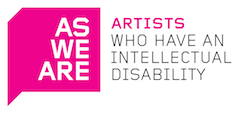To register click here – Families
Workshop Program 25 & 26 June:
DAY ONE
Family leadership, working together and changing the system Taryn Harvey
Taryn will talk about the different kinds of family leadership and the ways they are all important and can effect change. Change starts when parents feel confident, empowered and hopeful. Families can draw great benefit from sharing their knowledge and experience with others, and can change the system by coming together as a collective voice.
Getting on with it (when that’s the last thing you feel like doing) Beth Marchbank
Beth will talk about her experiences in coping with the sadness that her daughter doesn’t have the same opportunities in life that most non-disabled people do; and about how she coped with those feelings we all have; – grief, guilt, rejection, and love. Often we never seem to find a time or place where it’s okay to talk about these things and work them through with all the other bits of life going on. She’ll then tell about some strategies she’s used or learned from others to deal with feelings in everyday life; when there seem to be so many external messages telling us we should just get on with it.
Establishing healthy supportive relationships & boundaries Kate Ollier
This workshop will explore boundaries. There are lots of potential hiccups when families are working to support or be supported: Expectations, capacity and desire, and differences in values can all play a part. This workshop will be interactive with you drawing on your own creativity, positivity and practical side!
A business coaching approach to above & below the line thinking Tim Smith
In this session Tim will share the ways of thinking which have resulted in best practice and better service from “above and below the line” thinking, behaviour and outcomes is the most common factor that determines success in business owners in his coaching practice in Western Australia and nationally for nearly 25 years. The principle of any venture, including families achieving their goals. Tim will share this principle in a lively, interactive and fun session.
Family Leadership; Just two words, but SO many meanings Leticia Grant
Leadership is perceived as different things by different people. Whether you are leading and advocating for your own small family, mentoring and supporting other families or joining many families together to go ahead united, good leaders can be inclusive and have the insight to utilise the diverse talents, skills, capacities, differences and experience of many people in a team. Hear about a group where this has worked successfully.
DAY TWO
Leading my family through the Stages of change Dolly Bhargava
The family is a system composed of members in constant and dynamic interaction with each other. Patterns of interaction get established: who interacts with whom, who talks and who listens, who has the authority and who is the controlling force behind the scenes. The family has a pattern, a rhythm that is more than the sum of its parts. This workshop will discuss the stages of change model to outline how families change their habits and behaviours and integrate changes into their lives.
Hope—the vision of a better life from our support for each other Jaquie Mills
Research shows that hope and optimism are important for families to be strong and resilient, and to enjoy the experience of raising a child with disability. This session explores some of the reasons why families lose hope, and suggests strategies for helping families to get it back.
Strength based approaches to family support Susan Stanford
As families who engage others to support our loved ones, whether we want to or not, WE LEAD. We can choose to lead from a clear set of beliefs about people and their strengths, which will create a culture for ourselves, our loved one and those who support to thrive in. Susan Stanford has been assisting families to apply a strengths based approach to growing both the ‘formal and friends’ supporter base around their family member.
Non –stop Negotiating Maxine Drake
Standing up for your family by negotiating, not pleading. Human services are an entitlement but many families can feel like they are going to battle or begging to be heard. This session will be a discussion about strategies that can tip the power in your favour or at least have you leaving a negotiation less bruised.
Setting goals and conversations Jaquie Mills & Joanne Nunn
Having a vision for the future is the starting point for families to make the changes which will lead to a better life. Jaquie and Jo will share her story about how writing her vision down helped Jo and her son move from a hopeless situation to flourishing. They will also suggest practical strategies for helping families to identify and share their vision.
To register click here – Families








